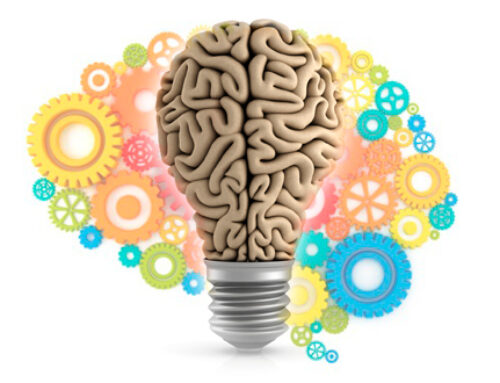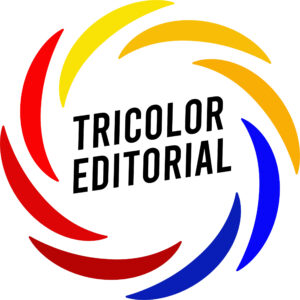SADM #81 Nov/Dic 2018
Julie Alvira, MD, Healthcare Management, AJ Bodysculpt
In the 1980’s, Carol Gilligan, a psychologist and professor at Harvard University and later at New York University, did not agree with previous colleagues Freud, Erickson, and even Kohlberg research on women.
They suggested that women were morally inferior. She argued that women are not inferior; just have a different kind of moral development that was not measured in previous theories.
In her book, psychotherapist Dr. De Azevedo Hanks (2016) pointed out Gilligan’s theory, «women tend to define and evaluate themselves based on their ability to care for others. This «ethic of care» psychologically orients women toward maintenance of relationships and interpersonal connections.» Carol Gilligan’s theory is based on stages which are fueled by changes in women sense of self.
Yes, we are naturally prone to connection and we all know how important is for us women the way we see and perceive ourselves (self image) regardless of how others see us. Even our self talk can impact our empowerment, emotional intelligence, self esteem, and self confidence in a positive way or on the contrary can denigrate our strengths, point out our inadequacies, and give power to the impostor syndrome (when an individual doubts their accomplishments and has persistent fear of being a fraud).
When we decide to become doctors and go to medical school there are a set of challenges that are faced by us women vs. males. Some of them are:
- The perception from others of you in terms of performance (can she really do it?)
- Recognition of your value (is she for real?)
- Others accepting the fact that you have authority (who does she thinks she is?)
- Commitment to work (if she is single w/o kids she might have more time until she becomes a mom or get married/maybe not do the job?/ if she is a mom already, then she has other priorities that are more important besides the job?)
- Gender pay gap (same job but sometimes men get offer more money, why?) and many more …
Like a colleague of mine said, «we have to constantly show our performance and efficiency way more than men» which leads me to my first topic.
Stress and Burning Out
«When there is awareness, there is opportunity.»
With stress you recover in your time off. With burn out, you are not able to recover in your time off which follows a downward spiral. It begins a bit before medical school and then continues. The competition, poor sleep, pressures, skip exercise, skip social events, poor eating, feeling of not good enough, depression, dealing with patient deaths, inability to accomplish obligations out of the medical practice, not having quality time with loved ones, a decrease in the sense of personal accomplishments, and in more recent years…all the times spend in administrative activities.
As many as 50% of physicians are affected by burnout (depends a lot in organization environment, specialty, satisfaction with job, age, work/life situation). Women under 45 years old are more likely to burn out than men. Studies show that women physicians are less productive. Really? I don’t call it less productive, I call it we are undervalued.
As stated above, we women are wired for connection and wear many hats. Female physicians are more likely to engage and connect with patients in aspects that men might not do. Sometimes in order to have a stronger connection with a patient, a female engages in the psychosocial aspects and needs. There is extra work in family meetings that might not be reimburse but there is the gratitude of patients for making time for them.
As a reality, patients of women doctors open up more when speaking on visits which enhances physician productivity, patient experience (patient satisfaction increases loyalty), and care quality. Then why the burn out?
Women vs. Male Factors
Women pattern (The superwoman)
- Emotional exhaustion, depersonalization and cynicism (dysfunctional coping mechanism), decrease feeling of accomplishment.
Male pattern (I can do it all and keep going)
- Depersonalization and cynicism (coping mechanism for stress), emotional exhaustion. Males do not think there is a decrease in their accomplishments or they are cynical so there is a denial of distress.
Besides the patterns above, women physicians have to deal with domestic household, sometimes sense of guilt, shame, their own emotional wounds (both sexes), society’s pressure of being an excellent wife and mother (if that’s the case), and face condescension and discrimination by other females and also males.
Side note: US physicians have the highest suicide rate of any profession. 300-400 commit suicide which in most cases, it is maintained quiet. The University of Michigan point out that there is a stigma that doctors have to be invincible and not show weakness. The bad turn is that whenever there is a need for mental health of any kind (depression, substance use, anxiety, etc…) there is not a safe space to seek care because of the fear of losing the license and seem as «weak.» Interventions come handy at this time.
Wellness solutions (you can’t fix everything or everybody)
Forget about being the superwoman and just be proactive in recognizing the signs and early warning symptoms of exhaustion. If you have an office, sit down with your team weekly and establish new techniques to simplify things while adding value. Be more assertive and start paying attention to how you feel and your thoughts and emotions, stop, step back, set time to practice self care and mindfulness, connect with yourself again, meditate (if you are open for it), set time for exercise, and reinforce your boundaries.
Consider other factors that are not at work such as life at home (be vulnerable and honest about how you feel, ask for help if you have a partner/ children and set a team environment). As another colleague said, «we are hard wired for work, but if you get sick or drop dead today, the world will keep turning.» Time to take action today!
Julie Alvira, MD MBA. www.coachdrjulie.com, julie@coachdrjulie.com.
Dr. Julie works as a Life Coach and her specialty is Women Recovery from Addictions.
#salud #saludaldia #saludaldiamagaz #saludaldiamagazine
Entérate, El bienestar de las doctoras en medicina o mujeres médicos
SADM #81 Nov/Dic 2018
Julie Alvira, MD, Healthcare Management, AJ Bodysculpt
En la década de 1980, Carol Gilligan, psicóloga y profesora de la Universidad de Harvard y más tarde de la Universidad de Nueva York, no estuvo de acuerdo con Freud y Erickson e incluso con la investigación de Kohlberg sobre mujeres.
Ellos sugirieron que las mujeres eran moralmente inferiores. Gilligan argumentó que las mujeres no son inferiores; solo tienen un tipo diferente de desarrollo moral que no se midió en teorías anteriores.
La teoría de Carol Gilligan se basa en etapas que son influenciadas por cambios en el sentido del yo. Sí, somos naturalmente propensas a la conexión y todos sabemos lo importante que es para las mujeres la forma en que nos vemos y nos percibimos a nosotras mismas.
Cuando decidimos convertirnos en médicos e ir a la escuela de medicina, hay una serie de desafíos que enfrentamos las mujeres contrario a los hombres. Algunos de ellos son:
- La percepción de otros de uno en términos de desempeño
- Reconocimiento de su valor
- Otros aceptar el hecho de que se tiene autoridad
- Compromiso con el trabajo
- Brecha salarial de género y muchos más …
El estrés y el agotamiento
Como se indicó anteriormente, las mujeres por naturaleza queremos conectarnos e interactuar. Es más probable que una doctora se conecte con sus pacientes en aspectos que muchos hombres doctores usualmente no hacen (sin generalizar). A veces, para tener una conexión más productiva con un paciente, una mujer se involucra en aspectos y necesidades psicosociales, se envuelve en trabajo extra mediante reuniones con familiares del paciente.
Factores Femeninos vs. Factores Masculinos
Patrón de mujeres (La “superwoman”)
- Agotamiento emocional, despersonalización y cinismo (mecanismo de supervivencia disfuncional), disminuye la sensación de logro.
Patrón masculino (puedo hacerlo todo y seguir adelante).
- Despersonalización y cinismo (mecanismo de supervivencia contra el estrés) y agotamiento emocional. Los hombres no creen que haya una disminución en sus logros o son cínicos, por lo que hay una negación de angustia.
Soluciones de bienestar
Olvidemos de ser la superwoman y simplemente ser proactiva para reconocer los signos y los síntomas de alerta temprana de agotamiento. Si tienes oficina, siéntate con tu equipo semanalmente y establece nuevas técnicas para simplificar las tareas y establecer metas viables y cortas. Se más asertiva y comienza a prestar atención a cómo te sientes, tus pensamientos y emociones.
Establece a tiempo la practica de cuidado personal y la atención plena, conéctate nuevamente con tu yo interno, establece tiempo para hacer ejercicio y refuerza tus límites. Considera otros factores como por ejemplo la vida en el hogar, se honesta acerca de cómo te sientes y como comunicarlo de manera efectiva sin ser agresiva y sin culpar a nadie, crea un ambiente de equipo de forma creativa. ¡Hora de actuar hoy!
Julie Alvira, MD MBA. www.coachdrjulie.com, julie@coachdrjulie.com.
La Dra. Julie trabaja como Coach de Vida y su especialidad es Women Recovery from Addictions.





